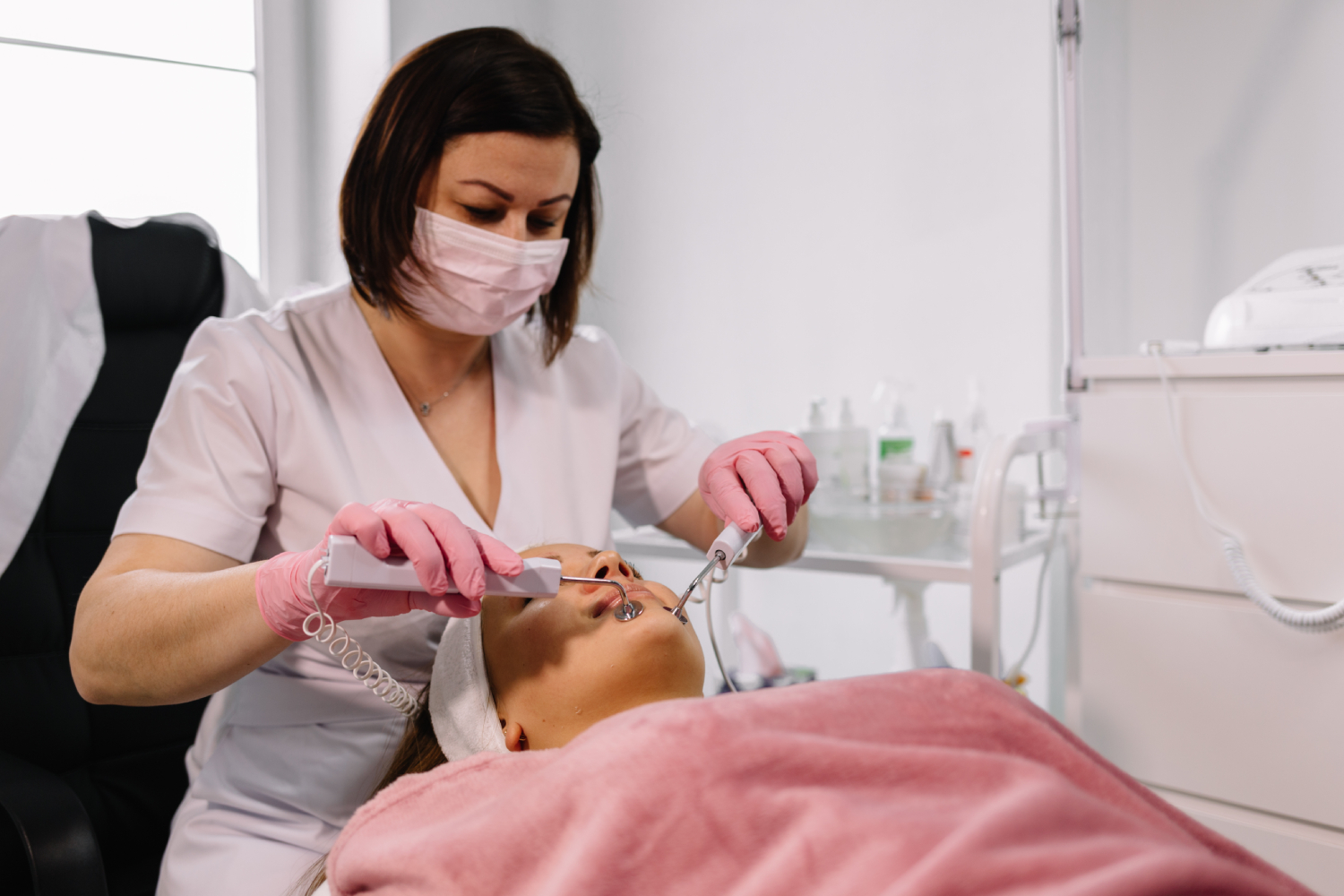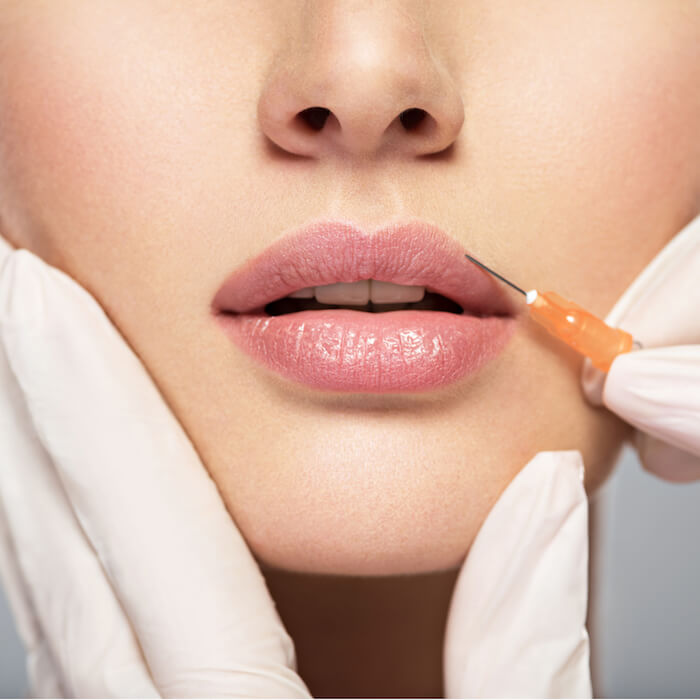As dermatologists, Dr. Ishmeet Kaur & Dr. Deepak Jakhar, have seen first-hand the transformative power of chemical peels. This cosmetic treatment is a popular choice for many patients seeking to improve the appearance of their skin. Dr. Ishmeet Kaur says,
‘Chemical peels are effective in reducing the appearance of fine lines, wrinkles, acne, sun damage, and hyperpigmentation’.
However, many patients overlook the importance of pre-peel preparation. Pre-peel preparation is a crucial step in ensuring a successful and safe chemical peel, according to Dr. Deepak Jakhar. The preparation process involves a series of steps that are designed to help the skin better tolerate the chemical peel and minimize the risk of complications.
The importance of pre-peel preparation
Pre-peel preparation is important to ensure that the skin is in optimal condition before undergoing a chemical peel, says Dr. Jakhar. Chemical peels are a form of skin resurfacing that involves the application of a chemical solution to the skin, which causes the top layers of the skin to peel off. This process can improve the appearance of the skin by reducing the appearance of fine lines, wrinkles, acne scars, and sun damage.
However, chemical peels can also cause irritation, redness, and discomfort if the skin is not properly prepared, warns Dr. Ishmeet Kaur. Therefore, pre-peel preparation is necessary to minimize the risk of adverse reactions and maximize the benefits of the chemical peel.
Some of the key benefits of pre-peel preparation include the following:
Improved skin tolerance: Pre-peel preparation can help improve the skin’s tolerance to the chemical solution used in the peel, reducing the risk of irritation and other adverse reactions.
Enhanced peel results: Pre-peel preparation can help enhance the results of the chemical peel by removing dead skin cells and promoting skin cell turnover.
Reduced risk of complications: Pre-peel preparation can help reduce the risk of complications, such as hyperpigmentation, infection, and scarring.
Overall, pre-peel preparation is an essential step in ensuring a safe and effective chemical peel procedure
Steps to prepare the skin for a chemical peel
As per Dr. Kaur, the steps to prepare the skin for a chemical peel may vary depending on the peel used and the individual’s skin type and condition. However, some general steps that may be recommended by a dermatologist include:
Consultation: Schedule a consultation with a skincare professional or dermatologist to determine if a chemical peel is right for your skin type and condition.
Discontinue certain skincare products: Discontinue using certain skincare products that contain retinoids, alpha-hydroxy acids (AHAs), beta-hydroxy acids (BHAs), and other exfoliating agents, as they can sensitize the skin and increase the risk of adverse reactions.
Use a gentle cleanser: Use a gentle, non-abrasive cleanser to cleanse the skin and remove any dirt and oil.
Avoid sun exposure: Avoid direct sun exposure and use broad-spectrum sunscreen with an SPF of 30 or higher to protect the skin from UV damage.
Use a moisturizer: Apply a moisturizer to help hydrate and soothe the skin.
Consider pre-peel treatments: Some skin care professionals may recommend pre-peel treatments, such as microdermabrasion or gentle chemical exfoliation, to help prepare the skin for the chemical peel.
Follow specific instructions: Follow any specific instructions provided by the dermatologist, including how long to prepare the skin before the chemical peel and any post-treatment care instructions.
It’s important to note that some individuals may not be good candidates for a chemical peel, depending on their skin type and condition. It’s best to consult with a dermatologist to determine if a chemical peel is appropriate for you and how to best prepare your skin for the treatment
Different products used in pre-peel preparation
There are a variety of products that can be used in pre-peel preparation to help prepare the skin for a chemical peel. The specific products used may vary depending on the type of peel being performed and the individual’s skin type and condition, adds Dr. Jakhar. Some common pre-peel preparation products include:
Gentle Cleansers: A gentle cleanser is typically used to remove any dirt, oil, and makeup from the skin. It’s important to avoid harsh or abrasive cleansers that can irritate the skin.
Exfoliating Agents: Exfoliating agents such as alpha-hydroxy acids (AHAs) and beta-hydroxy acids (BHAs) can help remove dead skin cells, improve skin texture, and enhance the effectiveness of the chemical peel. However, it’s important to avoid over-exfoliating the skin, which can lead to irritation and sensitivity.
Retinoids: Retinoids can help promote skin cell turnover and improve the appearance of fine lines and wrinkles. However, they can also increase skin sensitivity, so it’s important to avoid using retinoids for a few days before the chemical peel.
Moisturizers: A moisturizer can help hydrate and soothe the skin, reducing the risk of irritation and promoting healing after the chemical peel.
Sunscreen: It’s important to protect the skin from UV damage, which can increase the risk of post-peel complications. A broad-spectrum sunscreen with an SPF of 30 or higher should be applied to the skin daily, even on cloudy days.
Pre-peel solution: Some dermatologists may recommend a pre-peel solution to help remove any surface oils and prepare the skin for the chemical peel. The solution may contain a combination of AHAs, BHAs, or other exfoliating agents.
It’s important to note that the use of pre-peel products should be discussed with a dermatologist, as the products and regimen may vary depending on the individual’s skin type and condition. Additionally, it’s important to follow any specific instructions provided by the dermatologist to ensure a safe and effective chemical peel procedure.
In conclusion, pre-peel preparation is a critical step in ensuring the success and safety of a chemical peel. By taking the time to prepare your skin properly, you can maximize the benefits of the peel while minimizing the risk of complications. If you’re considering a chemical peel, be sure to talk to your dermatologist about pre-peel preparation and follow their advice closely to achieve the best possible results. Remember, good pre-peel preparation leads to great peel results!



Very useful information